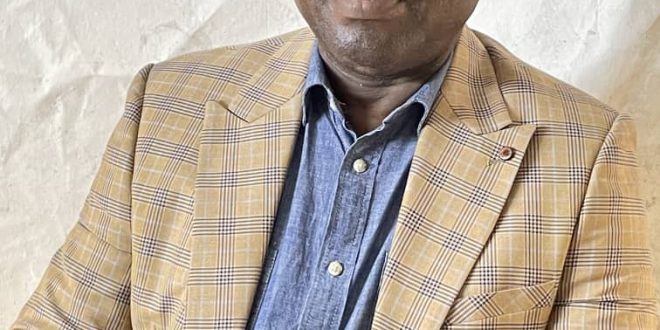Copyright Essence

You’ve got the product. You’ve got the social media virality. Your direct-to-consumer sales prove people want it. But getting into retail? That’s where a lot of Black beauty founders hit a wall. Honestly, many don’t even know how to do it at all. And the path to major retail isn’t exactly advertised, so when you don’t have industry connections, it can feel impossible to even figure out who to talk to. On the bright side however, there are actual programs designed to get emerging brands onto shelves. Not enough people know about them. And if you’re a founder of color, that knowledge (or exposure) is even less. For example, in 2022, Ulta launched the MUSE Accelerator specifically to support underrepresented founders. Eight brands get selected each year for financial support, mentorship, and retail readiness education you can’t get from YouTube tutorials, textbooks or even word of mouth. Ulta says the initiative is part of its efforts to support underrepresented founders. Over 500 brands applied for the 2025 cohort, so you can only imagine how steep the competition is, but it’s not impossible. Pound Cake, Octavia Morgan Los Angeles, Scarlet by RedDrop, and Ocoa (which are all Black owned beauty brands) all came through MUSE. Octavia Morgan, founder of OCTAVIA MORGAN Los Angeles, who went through the 2023 cohort shared her experience and why it was integral in her company breaking into the major retailer, “That opportunity gave us mentorship, strategic retail insights, and visibility that helped us refine how to position our brand for long-term success,” she says. “It also validated that our mission—elevating the art of clean fragrance—had a place within a major national retailer.” Before the accelerator, Morgan had built her brand around something specific: clean, luxury fragrances for people with scent sensitivities, gender-inclusive, designed with intention. “I wasn’t just selling fragrance—I was telling a story about confidence, creativity, and emotional connection through scent.” That clarity matters more than you’d think. Retailers can smell (sorry) when you’re still figuring out who you are. Ron Robinson, founder of BeautyStat, has been in the beauty industry long enough to also know what gets buyers to pay attention. “Initially, retailers are looking for brands that have buzz and engagement on both social media and press,” he says. “They are also looking for brands that have a growing, loyal community and customer base that loves their products.” Translation: you need receipts (and not just in the follower counts, but real engagement). This includes people tagging you, reordering and telling their friends. Press mentions help, but authentic community matters more when it comes to building a space in retail. A spokesperson from Ulta breaks down their evaluation criteria this way: “We look for innovative, high-performing products that fill an unmet need in our assortment and contribute to a community of founders who are pushing the beauty industry forward.” They’re checking product quality, sure, but also whether you fit a gap in what they already carry. And whether your brand resonates with their very diverse customer base. Morgan learned this early on. She focused on consistency, strong branding, premium visuals, and packaging that told a story before anyone read a word. Retailers notice when every touchpoint reflects intention. But the aesthetics only get you so far. “Lead with your story but know your strategy,” Morgan advises. “Retailers are inspired by innovation, but they also need to see readiness—proof that your brand can sustain growth, deliver on timelines, and connect with their customers.” She’s specific about what that means for Black founders: “Our stories, creativity, and cultural perspective are powerful. Use that as your advantage. Show how your brand adds something new and relevant to the category.” But also? “Start with excellence at every level—packaging, presentation, pricing, and product quality.” MUSE gets a lot of attention, but Sparked at Ulta Beauty is another entry point. It’s their discovery platform for brands making their retail debut, and since 2019 it’s launched over 30 brands. The program has grown to include “mentorship, marketing amplification and community-building to help founders grow beyond their initial launch.” When brands come through Sparked, Ulta’s merchants connect them with supply chain experts who walk them through systems and run test orders before anything ships. For founders who’ve never dealt with retail logistics, this can save you from expensive mistakes. And here’s something new: Ulta’s UB Marketplace is now inviting MUSE brands to join. It’s their online platform, which means you can reach 45+ million Ulta loyalty members without physical shelf space. Morgan wishes she’d understood sooner how much the operational side of retail would matter. Getting on shelves is one thing, but maintaining momentum takes careful planning, forecasting, and daily follow-up. Because let’s be honest, when you’re a founder, you wear every hat. You’re the visionary, creative, operator (which is already exhausting). But once you scale into major retail, you have to balance storytelling with structure. “Understanding replenishment cycles, in-store education, and inventory flow becomes just as important as product innovation,” she says. Robinson is blunt about the financial reality: “Balancing the investment that is needed to succeed in a big retailer while maintaining profitability has been a challenge for me.” You need to be ready to invest in marketing to drive customers to the retailer—sampling, testers, secondary locations, digital ads, PR, influencer activations, in-store sales teams. It adds up fast. The beauty industry is changing because Black founders are building undeniable brands and demanding space. Ulta’s programs aren’t perfect, but they’re real pathways that didn’t exist five years ago. Your brand deserves to be in those aisles. Now you know how to start getting there.



